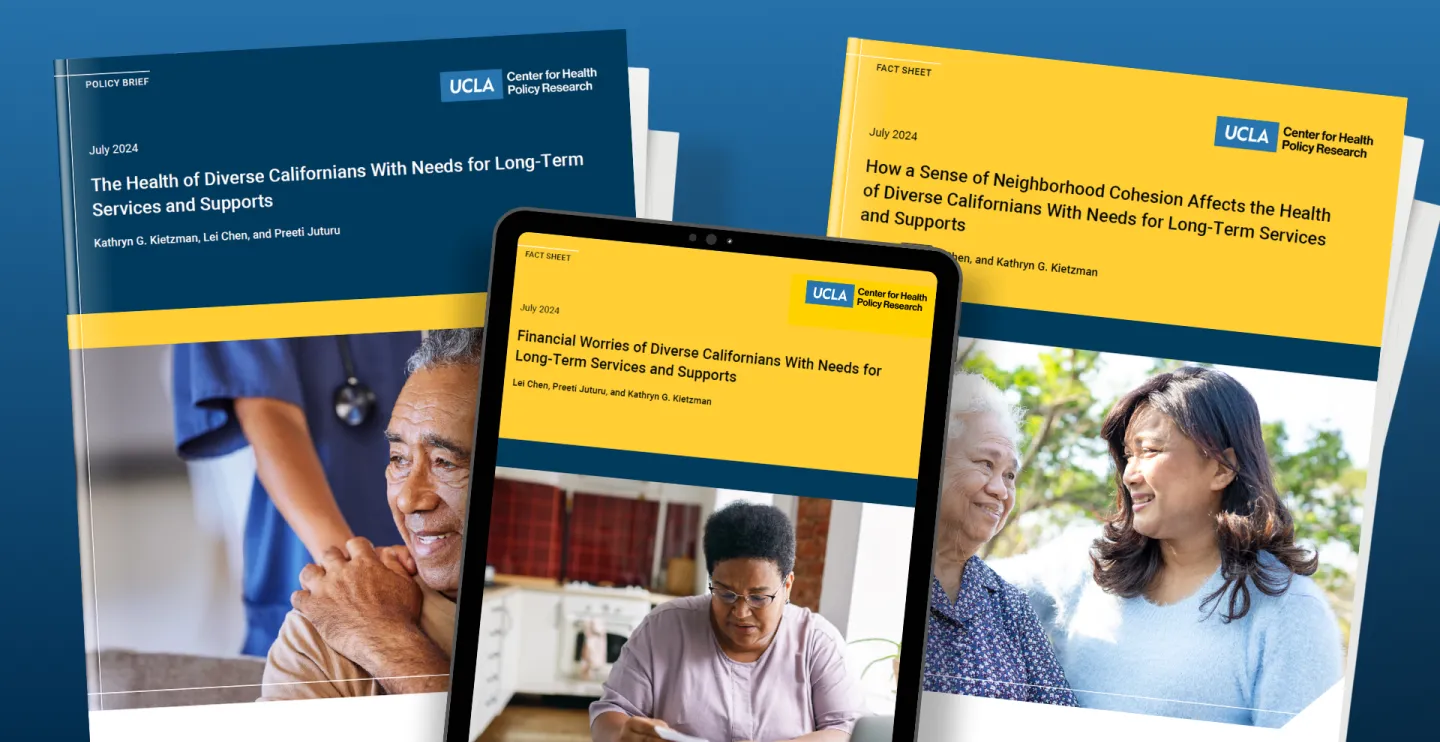81%
All California adults with LTSS needs who felt safe in their neighborhood

The UCLA Center for Health Policy Research is one of the nation's leading health policy research centers and the premier source of data on the health and health care needs of Californians.

We provide high-quality, evidence-based research and data that informs policy change and action. Explore our 50+ research projects and programs, including our nationally recognized California Health Interview Survey.

This fact sheet reports on social characteristics of neighborhoods as perceived by Californians with needs for long-term services and supports (LTSS). Authors detail how perceptions of neighborhood safety and trust vary by race or ethnicity and income and show how a sense of neighborhood cohesion (i.e., perceptions of neighborhood safety, neighbors’ willingness to help, and trust) may be an important driver of mental health for this population. The data presented were taken from the 2019–2020 California Long-Term Services and Supports (CA-LTSS) study, a follow-on survey of the 2019–2020 California Health Interview Survey (CHIS).
Findings: Most Californians with LTSS needs report high levels of neighborhood cohesion, but there are significant differences by racial/ethnic group. Significant differences in perceptions of neighborhood cohesion by income were also found. For Californians with LTSS needs, neighborhood cohesion may be an important driver of mental health.
All California adults with LTSS needs who felt safe in their neighborhood
Latino adults with LTSS needs who felt safe in their neighborhood
Adults with LTSS needs earning 200% FPL or more who trusted their neighbors
Adults with LTSS needs earning below 100% FPL who trusted their neighbors
Adults with LTSS needs who had serious psychological distress among those who felt their neighbors could not be trusted compared with 19% of LTSS adults who felt their neighbors could be trusted
Copied to clipboard
